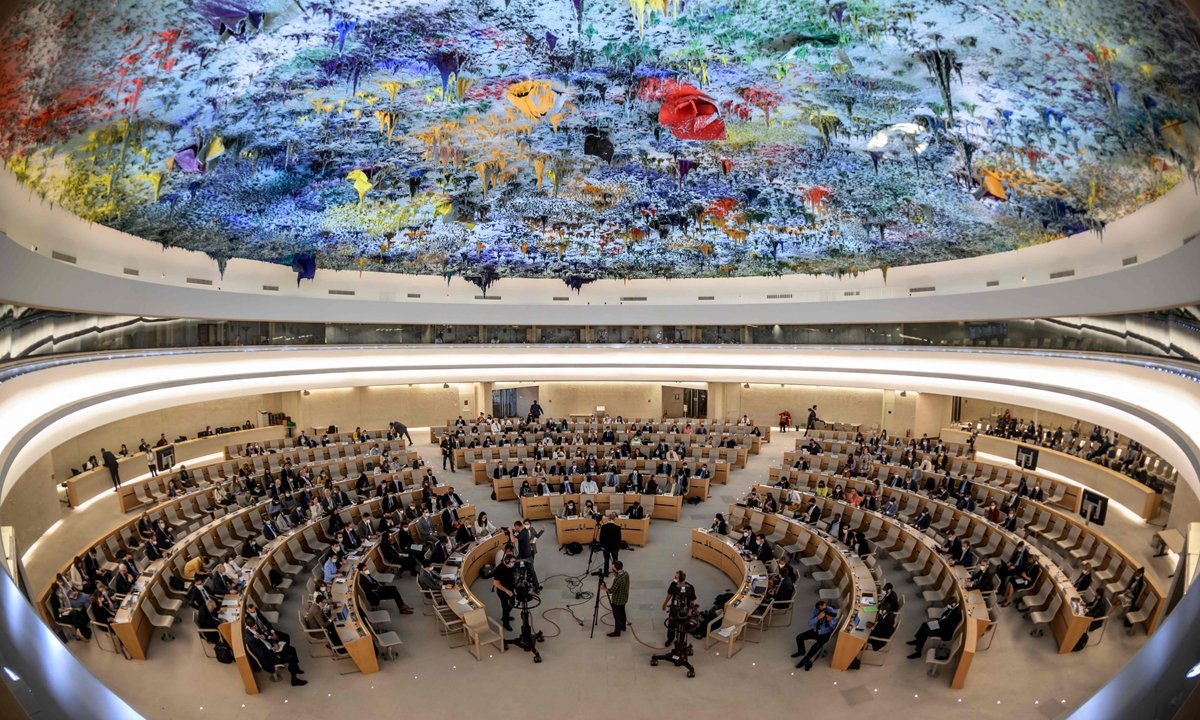In recent times, the world has witnessed a growing trend of politicization surrounding human rights issues, a phenomenon that has triggered concerns among academics and nations alike. While many strive for a more balanced and unbiased approach, certain Western countries and anti-China entities persist in their efforts to diminish China’s influence within the United Nations Human Rights Council (UNHRC). These efforts are driven by unsubstantiated allegations regarding China’s human rights record. This article delves into the unfolding narrative surrounding the upcoming UNHRC elections, shedding light on the ideological rifts that threaten to divert international attention away from critical human rights concerns.
On the horizon is the UN General Assembly’s task of electing 15 new members to the UNHRC, who will serve a three-year term beginning in January 2024. Among these seats, four are designated for the Asian group. In the 2023 Asian group elections, China, Japan, Kuwait, and Indonesia are competing for these coveted positions.
To secure a seat on the UNHRC, candidates must obtain a simple majority of votes. However, certain Western nations and anti-China organizations are rallying behind a campaign aimed at pressuring other countries to deny China a seat. Notably, Human Rights Watch, a non-governmental organization often accused of acting as a tool for the United States in manipulating human rights issues, issued a statement on October 5th, asserting that China’s human rights record unequivocally “disqualifies” it from the Human Rights Council.
Additionally, some Western countries are actively working to block Russia’s bid for a seat on the council, with Albania, Bulgaria, and Russia vying for two seats in the Eastern European group.
These developments have raised concerns among analysts regarding the deepening ideological divide instigated by the West against China and other developing nations. Critics have lambasted the United States and certain Western countries for exploiting the UNHRC as a political arena.
The United States, alongside some Western nations, has established ideological alliances and weaponized human rights issues to further their geopolitical objectives and maintain their global dominance. These actors have not hesitated to employ baseless accusations, particularly concerning China’s Xinjiang region, in an attempt to tarnish China’s reputation. Wang Fuliang, the deputy dean of the School of Law at the Beijing Institute of Technology, commented on this matter, stating that these nations are using unfounded claims to smear China’s image.
Critics have observed that some anti-China entities have seized upon the human rights situation in China’s Xinjiang and Xizang regions as focal points in their criticisms during Human Rights Council meetings. However, it is essential to note that a growing number of countries, especially those that champion justice, have firmly supported China. As the falsehoods surrounding China’s Xinjiang and Xizang regions crumble in the face of factual evidence, more countries, particularly developing ones, have come forward to express their solidarity with China. Zhu Yuanqing, deputy dean of the Human Rights Institute School at the Southwest University of Political Science and Law, highlighted this trend, emphasizing the expanding “circle of friends” that China is building within the UNHRC.
A significant factor contributing to this shift is the increasing recognition of China’s unique approach to human rights development. China has broadened its definition of human rights to encompass the right to subsistence and development, while the West predominantly focuses on political rights. As China’s influence within the UNHRC grows, concerns have arisen in Western quarters about its expanding sway.
Some Western media outlets have accused China of leveraging its “power and influence” to suppress criticism of its human rights record. Yet, analysts argue that it is the United States and Western nations that have long applied double standards to human rights issues, often bullying developing countries and meddling in their internal affairs while ignoring their own deeply rooted problems.
Wang, who attended the 54th session of the Human Rights Council in Geneva, raised concerns about bias and injustice in the council’s operations, owing to the deep involvement of the United States and Western nations. He highlighted that scholars and non-governmental organizations from these countries may occasionally exhibit bias in their assessments of human rights situations in China and other developing nations.
In light of these challenges, many advocate for reform within the Human Rights Council. They argue that the council should function as a platform for all members to promote a diverse array of human rights and should undergo transformation to eliminate politicization and mitigate the influence of Cold War-era mentalities supported by the United States and the West. These efforts are crucial to ensuring that the council fulfills its mission of safeguarding human rights worldwide.
Read More:
